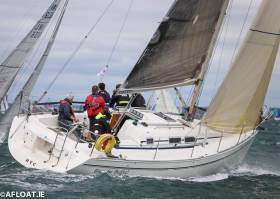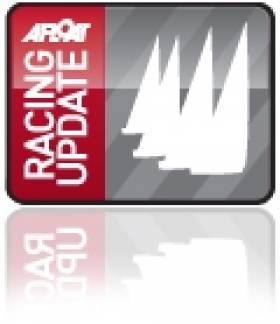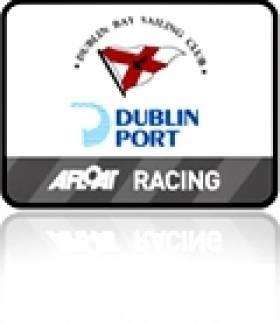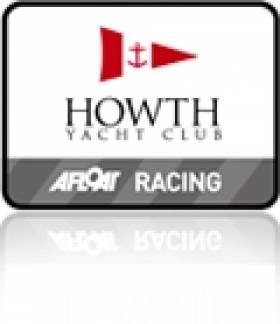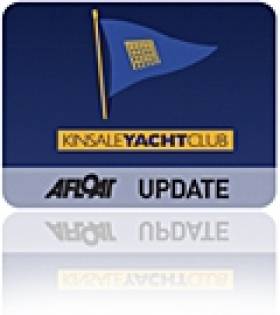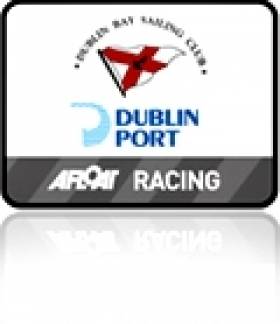Displaying items by tag: White Sails
Howth's 'Toughnut' is White Sails Fleet Leader of ICRA Nationals
Dermot Skehan's MG34 Toughnut of the host club leads the White Sails fleet at the Monday.com ICRA National Championships at Howth Yacht Club.
After no racing on the first day of the Championships, clouds cleared to allow a perfect sea breeze to develop, with four races completed on all three-course areas on Saturday.
Windsor Lauden in the vintage Shamrock, Demelza, also of Howth, is lying second after four races sailed. Third in the seven-boat fleet is the North Dublin Club's Splashdance (John Beckett Andy George).
Racing continues on Sunday.
Riome’s Valfeya Takes White Sails League Win at Kinsale Yacht Club
David Riome’s Valfeya won Saturday’s third race of the McCarthy Insurance October/November White Sails League at Kinsale Yacht Club in Fleet 1, both IRC and ECHO from John Stallard’s Siboney.
Overall, Valfreya is on six points in IRC, one ahead of Siboney on seven. Michael Carroll’s Chancer is third on nine.
In ECHO handicap, the same trio tops the league - Valfreya on 5 points, Siboney 8 and Chancer 12.
Fleet 2 IRC leader is Patrick Beckett’s Miss Charlie on 5 points from Sallybelle (Albert O’Neill) 6, with Dominic Falvey’s Swift on 10.
In ECHO, Sallybelle (6 points) leads from Swift and Miss Charlie who are both on 10.
O’Leary Insurances Winter League at Royal Cork Will Be All-In White Sail Racing for 2021
The Royal Cork Yacht Club has announced that this year’s O’Leary Insurances Winter League will be run as an all-in White Sail league.
The club says it initiated the trial event for 2021 to encourage as many keelboats as possible out for the Cork Harbour league, where all boats will be racing against each other for the Archie O’Leary Trophy.
Clem & Wendy McElligott will be back in the OOD boat for the league which kicks off this Sunday 7 November. First Gun will be 12.25pm with one all-in race per day.
The Notice of Race, with links to the entry form and race declaration, is available from the RCYC website HERE.
Howth Yacht Club's 'Bite the Bullet' Leads Dun Laoghaire Regatta White Sail Division One
In the IRC Non-spin 1 division of Volvo Dun Laoghaire Regatta today, the Elan 333s are having a fine old time of it, with the overall placings now putting Colm Bermingham’s Bite the Bullet from Howth first, while Paul Tully’s White Lotus (DM) is third, but in between is Terry Fair from Balyholme YC with his Sigma 33 Cariad.
IRC Non-Spinnaker 2
In the IRC Non Spin 2 class, Paul Conway’s stylish veteran Contessa 32 Cevantes revelled in it today to log more wins in every race, next best was the UFO 31 Menapia (James & Sue McSweeney), whole the Holland-designed Super Seal Gung-Ho (Grainnne & Sean O’Shea) was third.
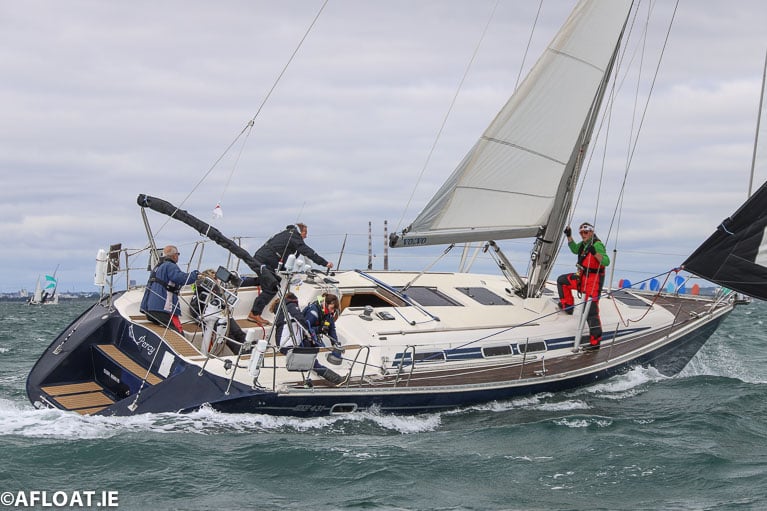 The Elan 431 Percy (John Roberts and Julie Jefferson) from Whitehaven in the UK
The Elan 431 Percy (John Roberts and Julie Jefferson) from Whitehaven in the UK
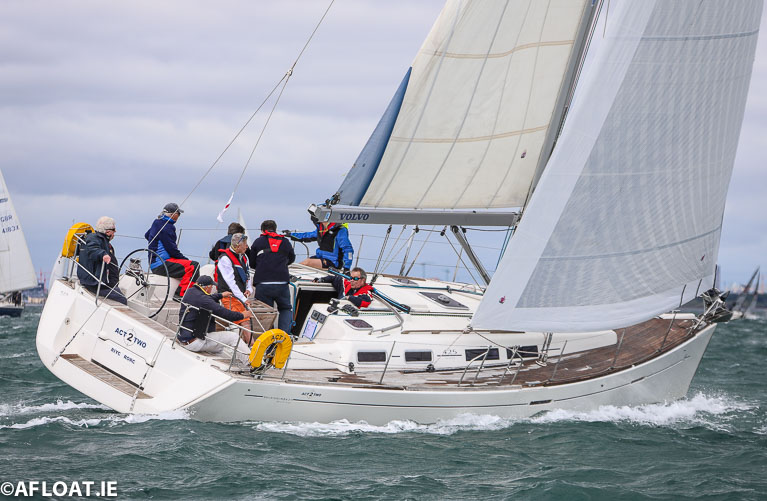 Michael O'Leary's Act Two
Michael O'Leary's Act Two
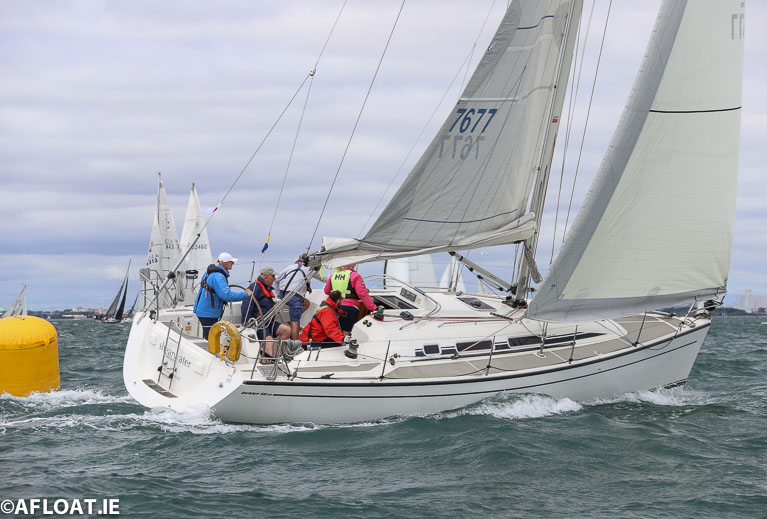 Eamonn Doyle's Royal St George Yacht Club Shearwater, a Dehler 36SQ
Eamonn Doyle's Royal St George Yacht Club Shearwater, a Dehler 36SQ
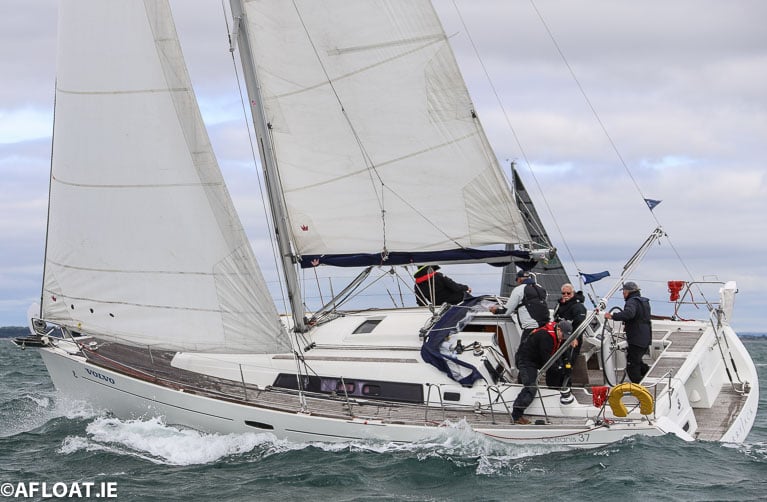 Merryjack, an Oceanis 37 (Gerry & John Bell) from Ballyholme
Merryjack, an Oceanis 37 (Gerry & John Bell) from Ballyholme
White Sails Fleet To Do Battle Again on Dublin Bay
#whitesails – "No spinnaker" does not mean "No competition". In the cases of the White Sail Classes in Dublin Bay and elsewhere there is certainly no lack of competition with large fleets out on the racetrack throughout the summer months. Significant numbers of White Sails boats are found competing at the business end of the all-comers winter fleets giving the lie to the "No Spinnaker, Tea and Muffins" image bestowed on these mainly cruising boats, that race without flying spinnakers.
In 2014, Dun Laoghaire's Royal St. George Yacht Club inaugurated its White Sails & Non-Spinnaker Inter-club Team Challenge event, which ran over the Club's Regatta weekend in early July. The event was a huge success with all of the participants having great racing afloat and good craic ashore. The Host Club carried off the newly commissioned trophy, thought the Royal Irish challenged right to the wire.
The RSGYC challenge will be renewed for 2015 over the weekend of 12th to 14th June linking in with the Royal Alfred Yacht Club's Bloomsday Regatta which is hosted by the Royal St. George Yacht Club. The Challenge event will be run on Friday and Sunday by Race Officer, Martin Byrne, starting with a Round the Cans Welcome race at 16.00 on Friday, and then the Bloomsday Regatta races on Saturday under the guidance of Hal Beakley and finishing with an "offshore" race on Sunday. The shore-side activity includes a Friday evening Sailing Supper and a Sunday morning pre-sailing breakfast as well as the RAYC's Saturday events.
The event is open to all boats not flying a spinnaker, other than boats where the RAYC offer one-design racing. White Sails, Black Sails, Brown Sails, even Red Sails, furler and non-furler jibs – all are invited to join the fun.
KPMG are generous sponsors of this year's Royal St. George Yacht Club, White Sails and Non-Spinnaker Team Event. Notice of Race and Entry Forms are available on the club website at the unbelievable price of €75 for the three days including the Bloomsday Regatta. Racing for an IRC result will add €10.
Download poster below
White Sails Fleet to Hold Pre-Season Meet
#WHITE SAILS – Dublin Bay's White Sails fleet meets at the Royal Irish Yacht Club on March 6th to discuss new progressive ECHO and the 2012 racing schedule. The meeting will also include details of training days for the class, now one of the biggest on Dublin Bay. The DBSC White sail season kicks off Saturday, April 21st.
Tiger Beats Trinculo in Howth Yacht Club Race
Kinsale Yacht Club Announces 2011 Sovereign's Cup
Details of the 2011 Sovereign's Cup were announced at a reception at Kinsale Yacht Club, hosted by Regatta Director, Gary Horgan. The Sovereign's Cup takes place from 22nd-25th June 2011 in the outer harbour of Kinsale which prides itself with excellent sailing conditions, as well as an extensive social programme ashore.
The Sovereign's Cup was established in 1995 as a biennial event and has been a very successful and hugely popular cruiser regatta, with over 140 boats from all over Ireland and the UK competing for the prestigious Sovereign's Cup for best all round score in IRC and The Portcullis Trophy for best progressive handicap.
There are many Classes for entry; including Class 0, 1, 2, 3, 4 and two White Sails classes. Also, the Quarter Ton Class Championships will be taking place during the Sovereign's Cup, bringing many new visitors to Kinsale from the South of England and Wales in particular.
Eamonn Rohan in Blondie IV a Mills Design King 40, claimed the 2009 Sovereign's Cup as the 2009 Portcullis Trophy was awarded to Chapman / Reilly's Crazy Horse. Anchor Challenge captured Class 3-IRC and the Quarter Ton Class and was awarded the Keane's Jewellers Quarter Ton Perpetual Trophy.
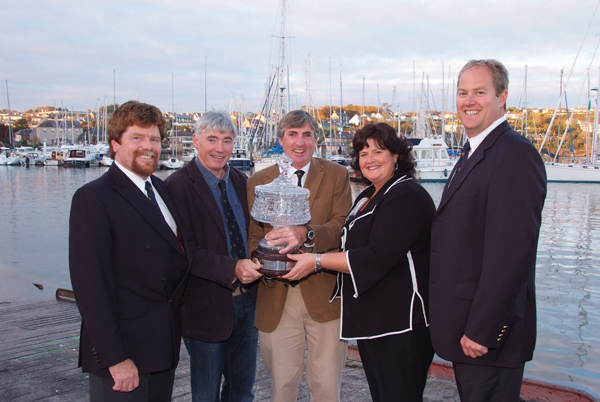
The Kinsale Yacht Club committee behind the 2011 Sovereigns Cup
"We have already received a number of entries for The 2011 Sovereign's Cup in June and we will be stepping up our sponsorship and communications programme as the months advance," said Gary Horgan, Race Director. "We are very grateful to Kinsale Yacht Club, the Race Management team and all the volunteers who get involved with the organisation of the Sovereign's Cup as we are working hard to organise an excellent programme both on and off the water. We are encouraging people to start thinking about their travel and accommodation plans and are delighted that the Cork Swansea ferry will enable more sailors to access Kinsale easily from the UK," he added.
MGM Boats to Sponsor Dublin Bay Sailing Club Cruiser Challenge
Racing for Cruisers 0,1, 2 the Sigma 33 and First 31.7 will start late afternoon on Friday 27th. Racing runs until Sunday the 29th over a selection of courses on the Bay. The event is hosted this year by the Royal Irish Yacht Club.
MGM Boats say they are committed to developing the capital's end of season regatta and along with DBSC are exploring the idea of introducing a Jeanneau Cup in 2011 along with the inclusion of the popular Class 5 or white sails division on a separate course during the regatta. The aim is enjoyable, top quality racing that will suit all Cruiser fleets on Dublin Bay, according to the firm's Ross O'Leary. Enter to this year's event now by downloading entry forms from www.dbsc.org



























